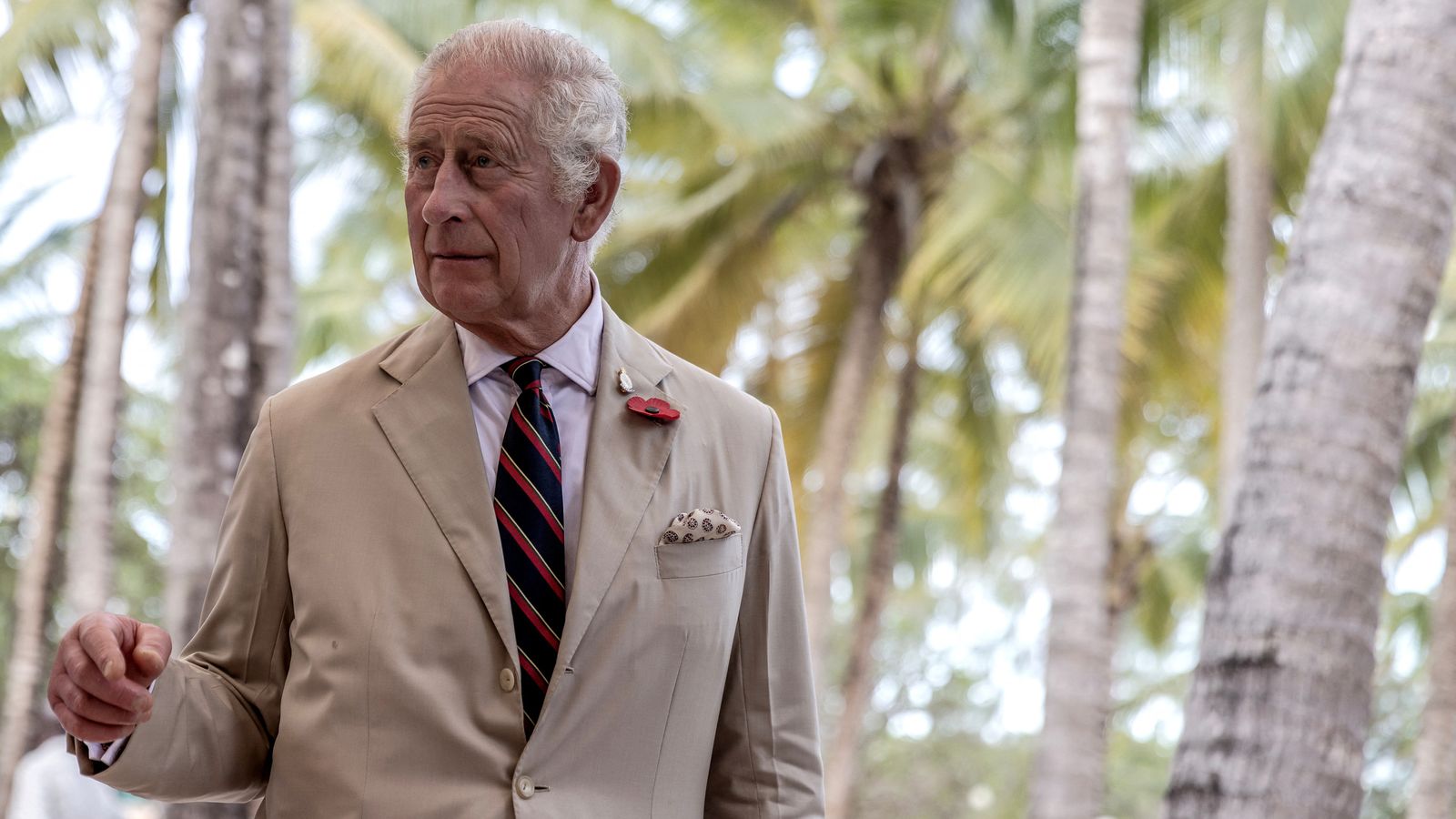Even with four days there seemed a lot to do in Kenya. This was a moment for the King to define his vision for the Commonwealth.
But it was also a chance to address historic colonial violence. This year marks sixty years of Kenyan independence, but many in the country still seek a formal apology over abuses suffered by those who rebelled against the British.
It was an issue that threatened to overshadow the entire visit. That’s why the King’s speech delivered during a state banquet mattered.
And although he didn’t say sorry, he went a lot further than many would have thought. The wording was strong and significant. Whether it was enough will be for others to judge.
But certainly the president of Kenya’s remarks reflected the strength of feeling. Mr Ruto spoke of “brutal colonisation” and “monstrous” cruelty.
The King speaks on the advice of the government, so even if he had wanted to apologise it wouldn’t have been possible.
But this though, was also a trip that needed to look to the future.
Kenya is a vital ally in an unstable region. The display by Kenyan marines was more than a show, it was a reminder of a strategic defence partnership, working against the threat of terrorism.
As for the Commonwealth, the engagements showed many of the causes the King wants to focus on, youth opportunity, trade and, of course, the climate crisis.
No coincidence his appearance at the UN Environment Programme came with news he will attend this year’s COP climate summit.
Read more:
Kenya aims to ‘amend’ defence agreement with UK
King hands medals to Kenyan veteran
Camilla bottle feeds baby elephant
After the disappointment of being told he couldn’t go last year, the King is said to be pleased.
Diplomats are already hailing the trip a success. Kenya’s relationship with the UK matters.
So too does the King’s interaction with the Commonwealth he now heads.
This story originally appeared on Skynews



